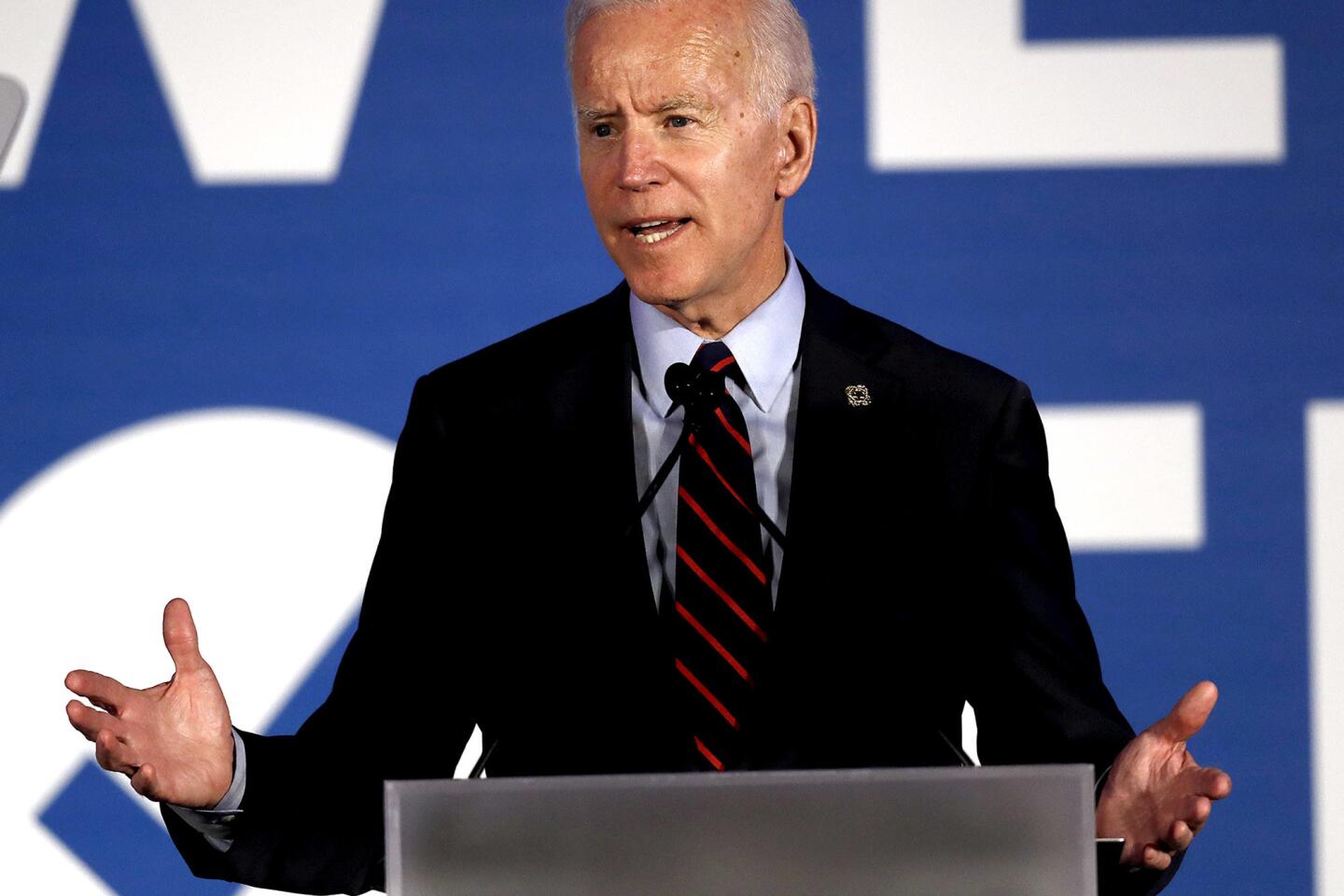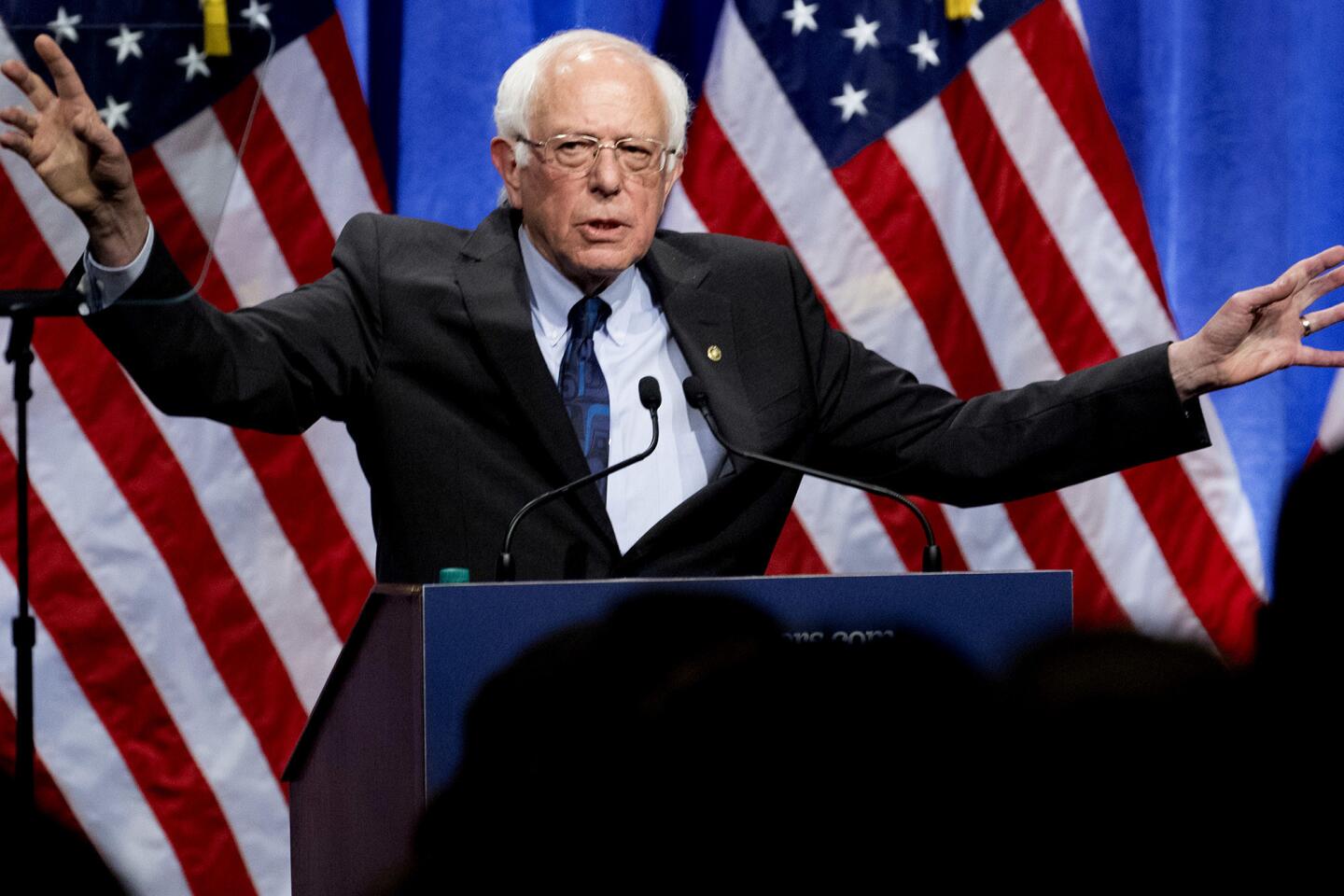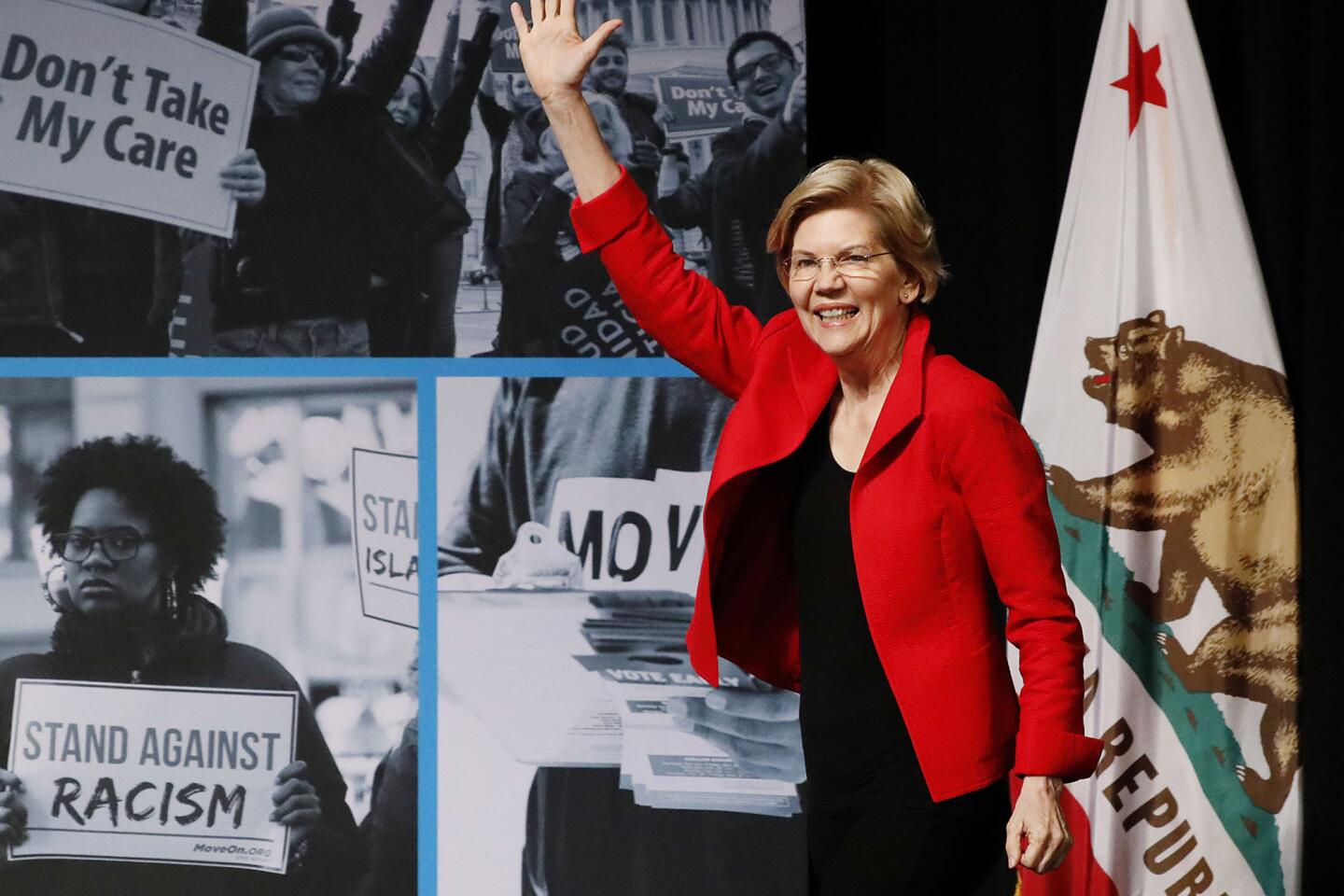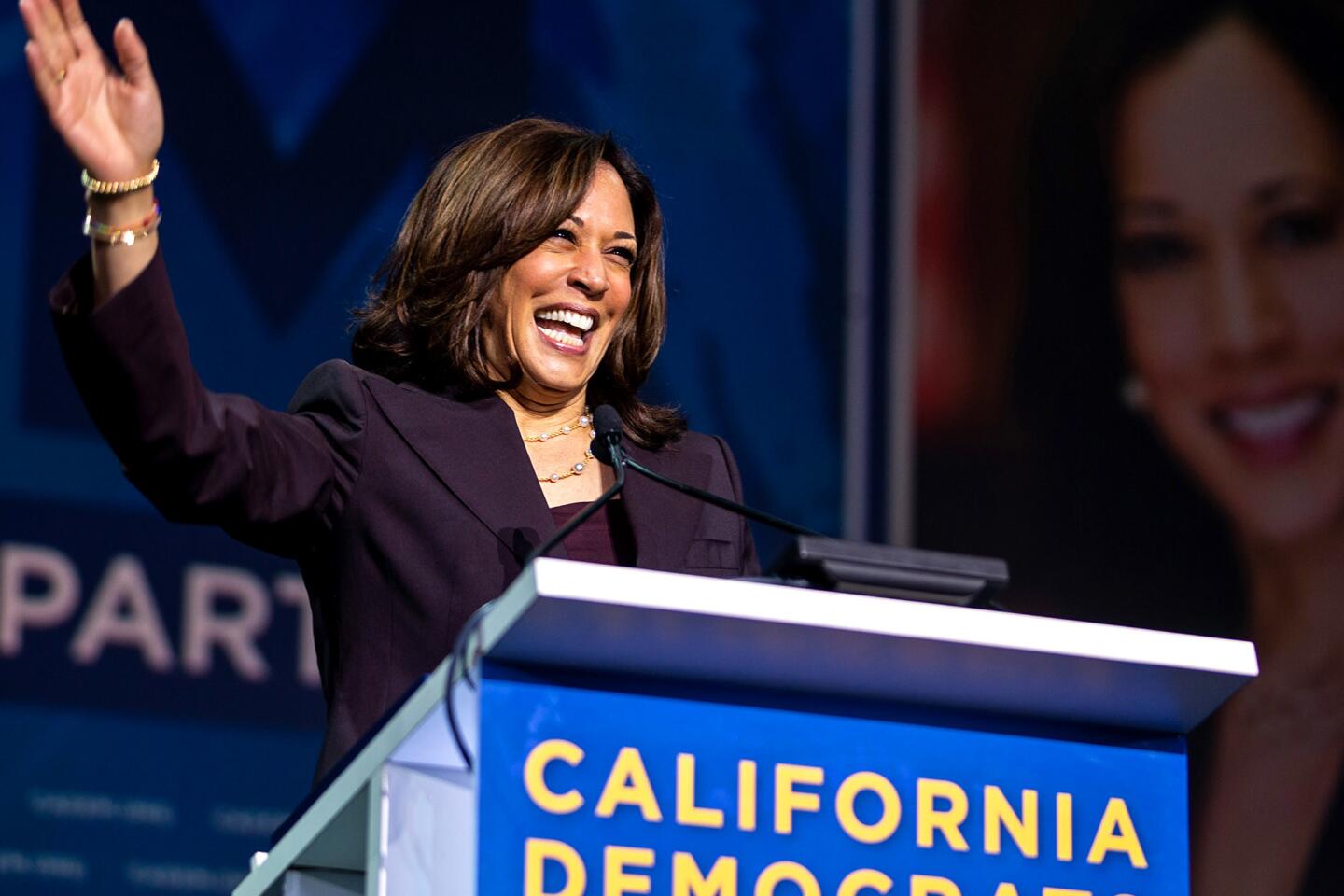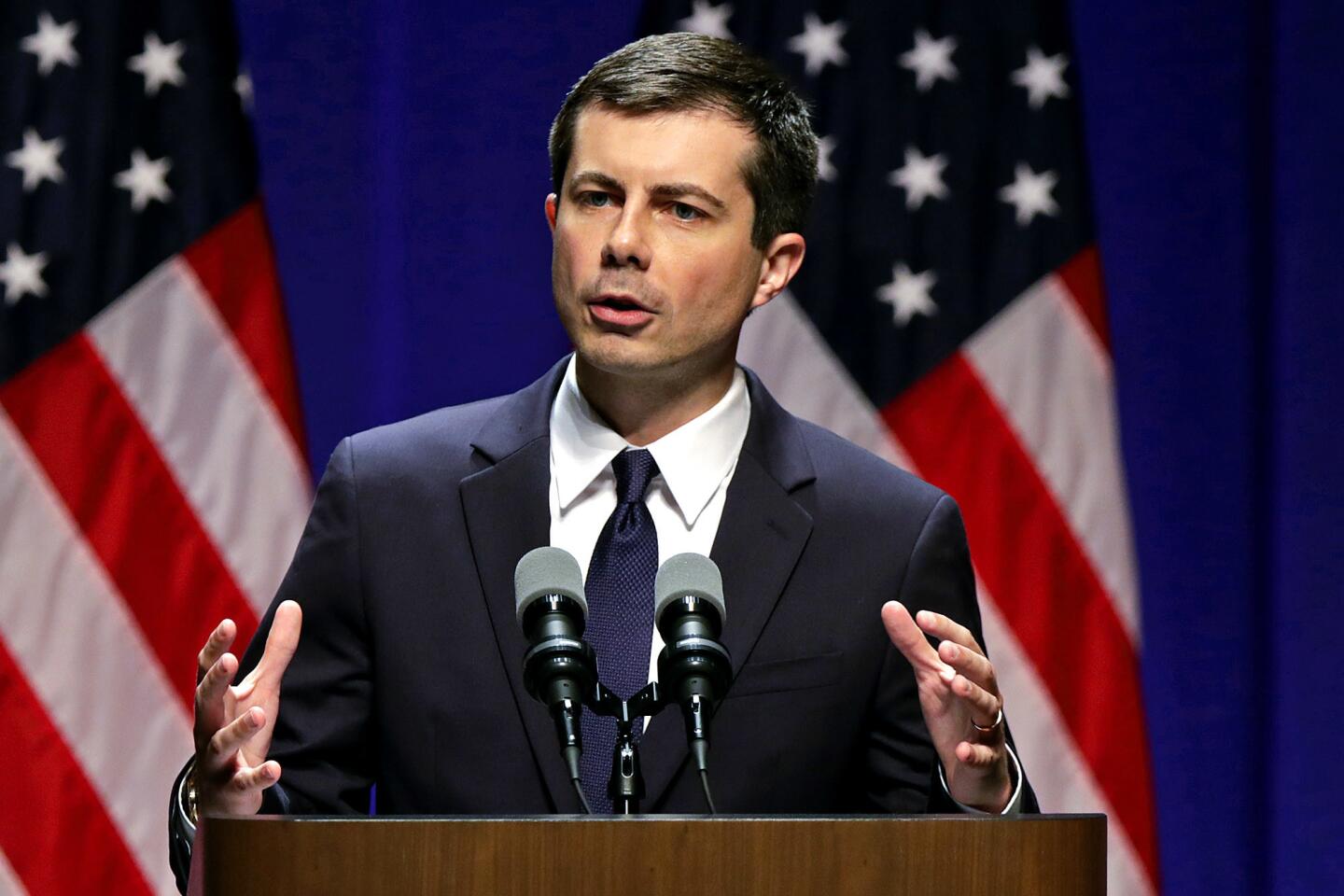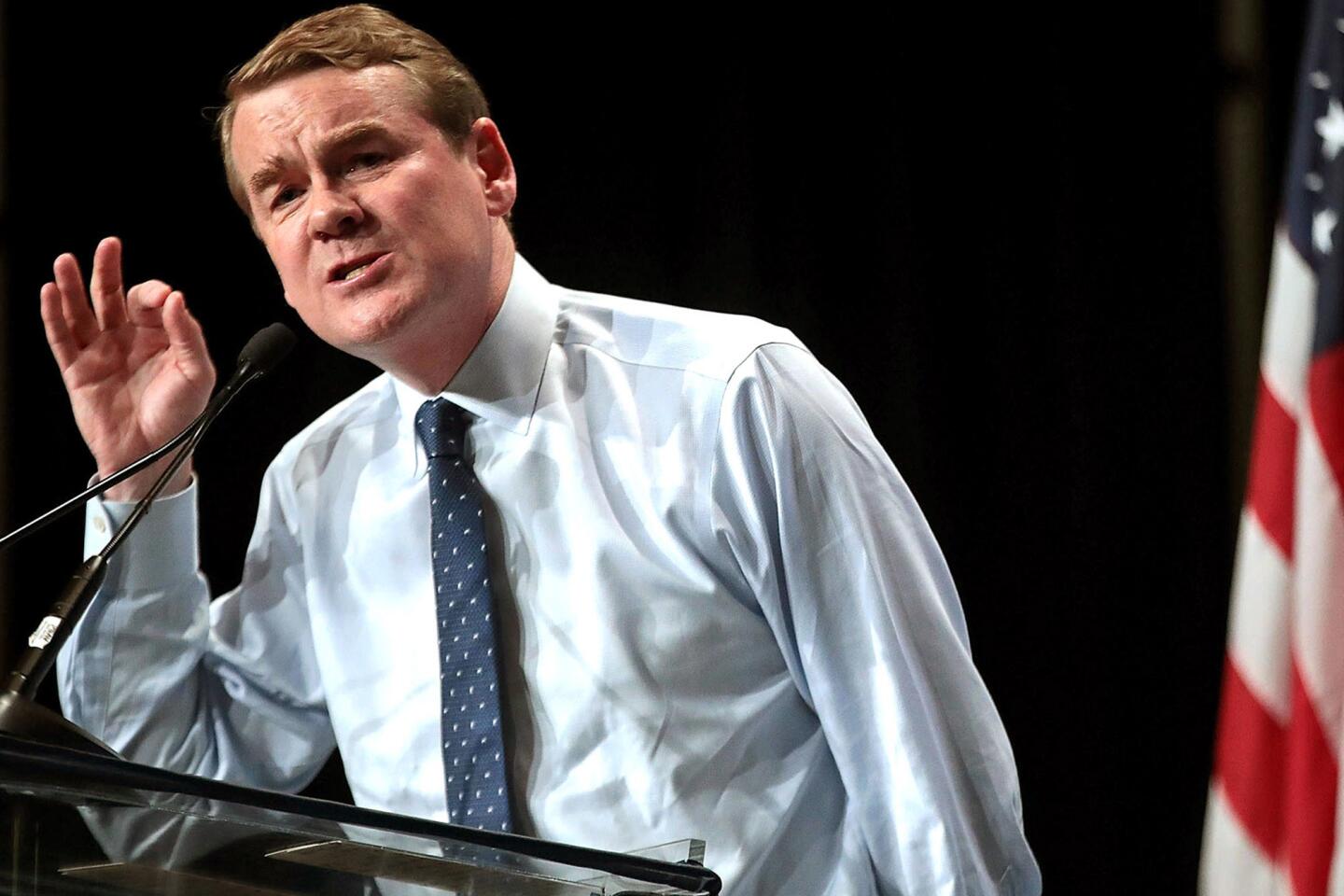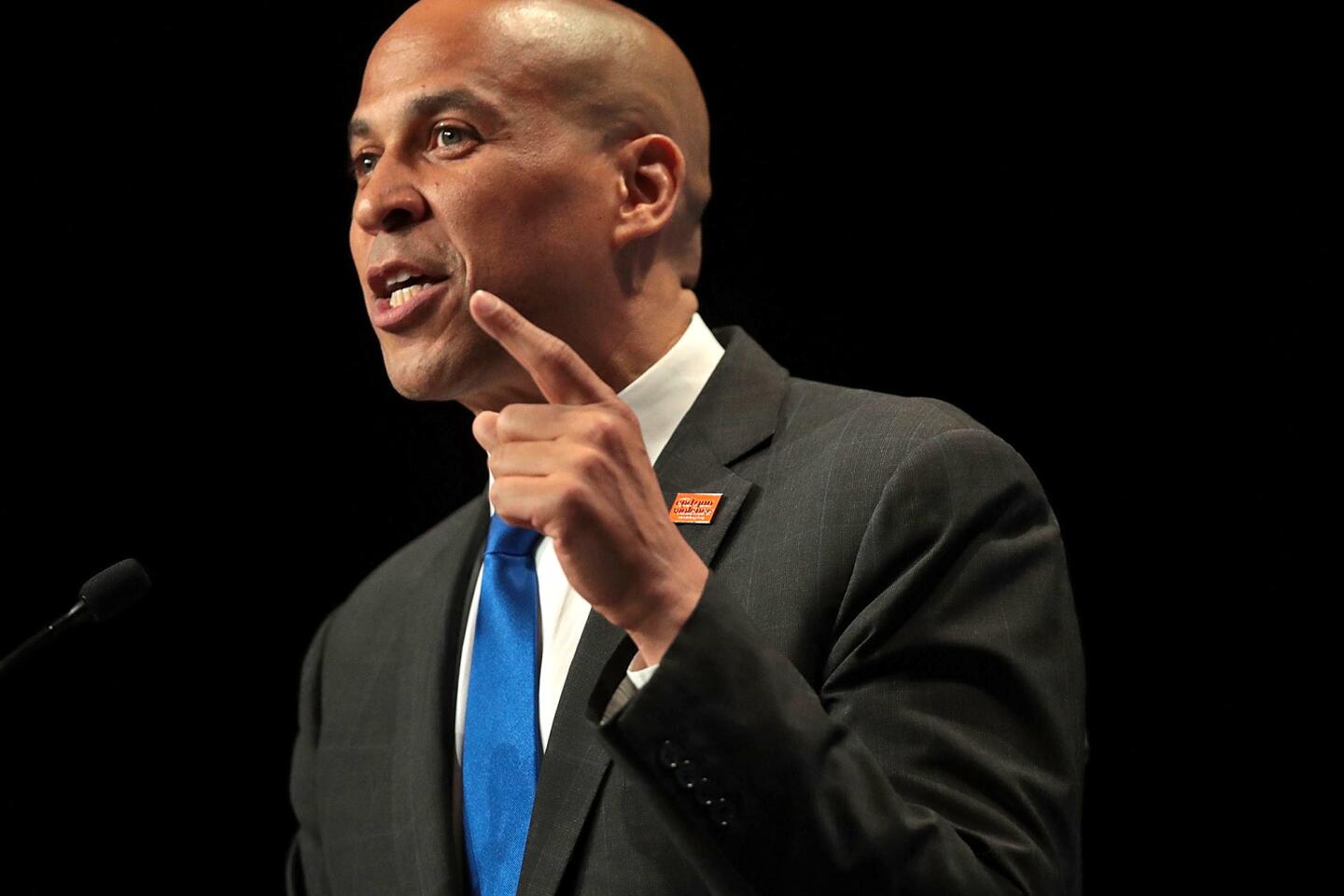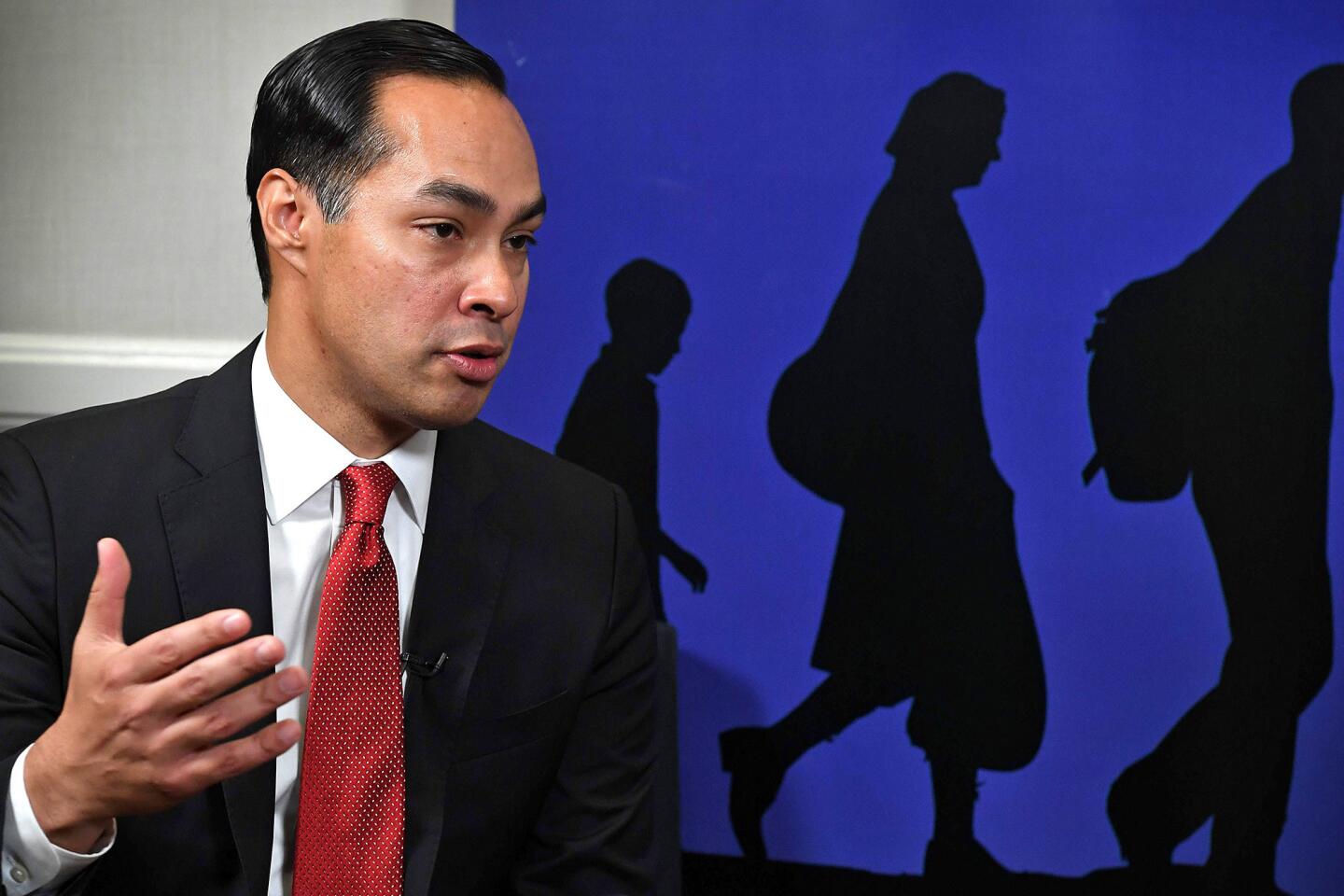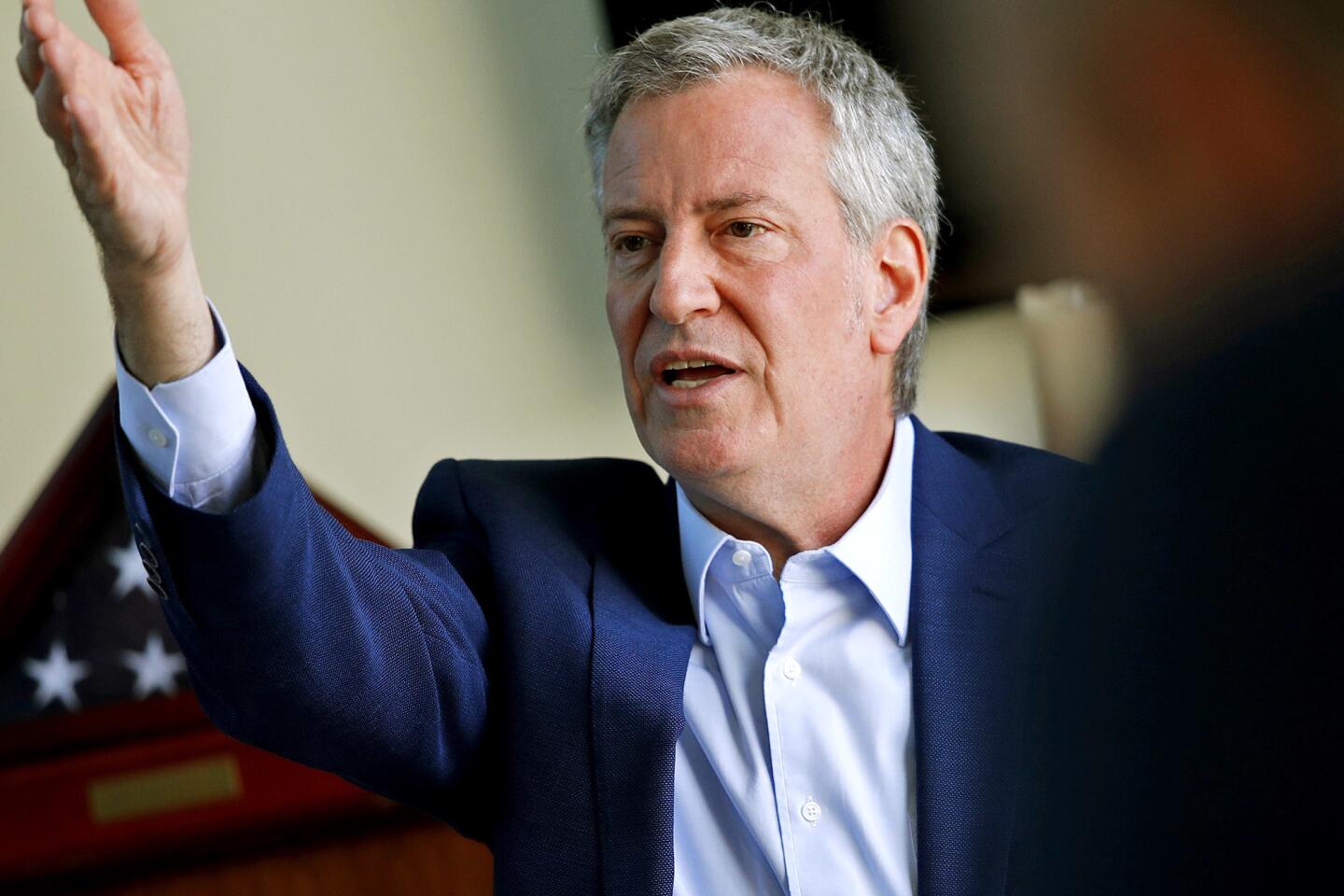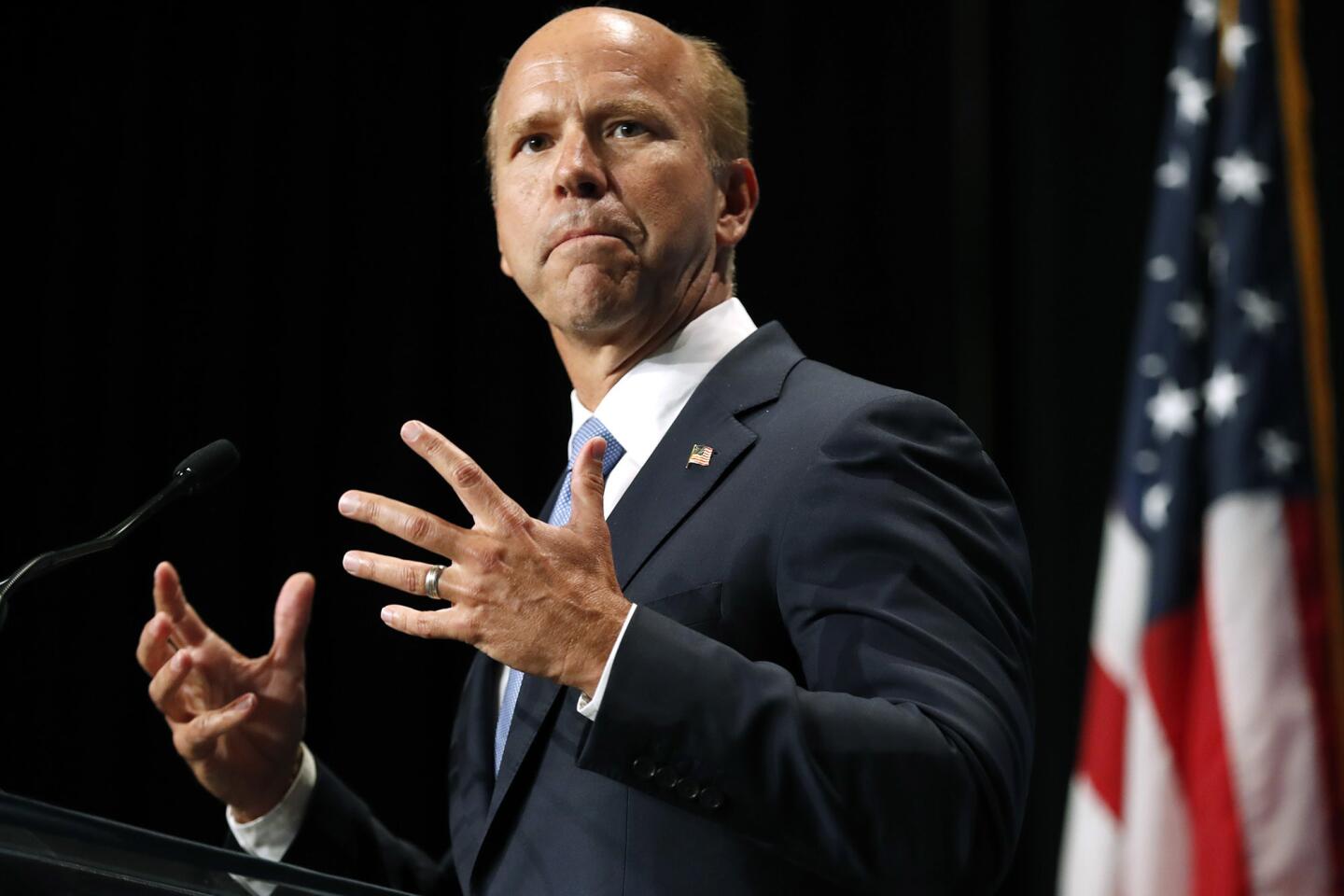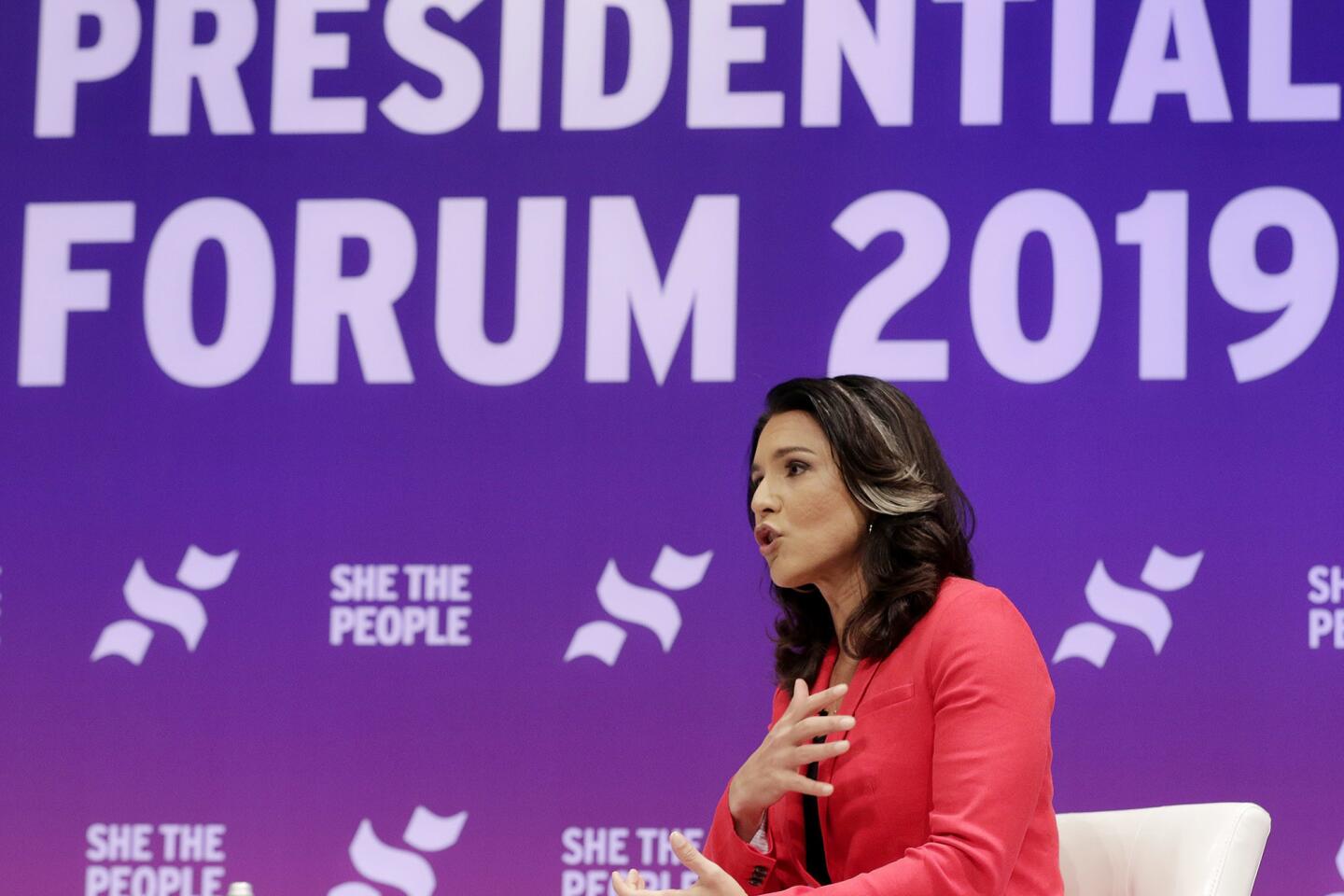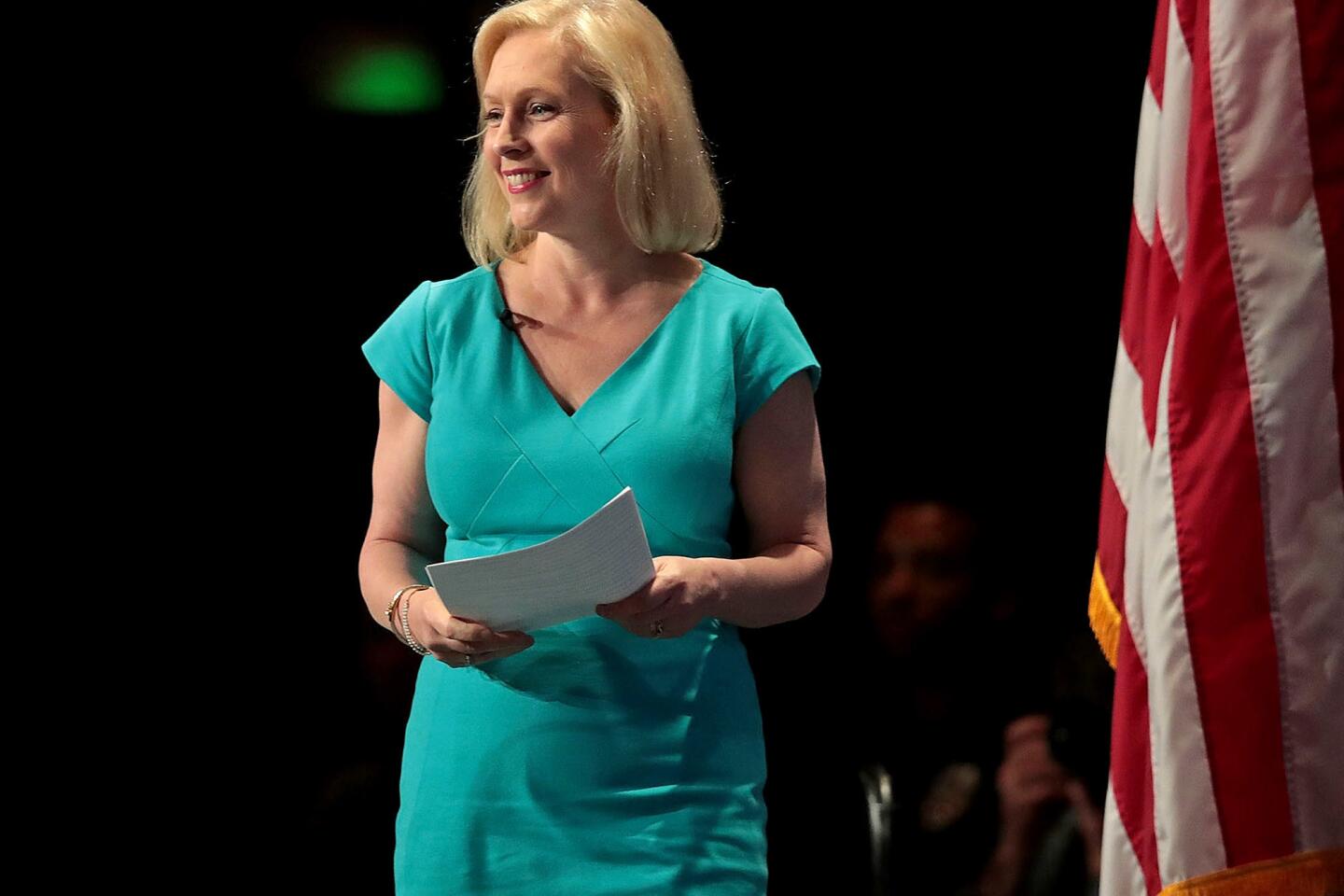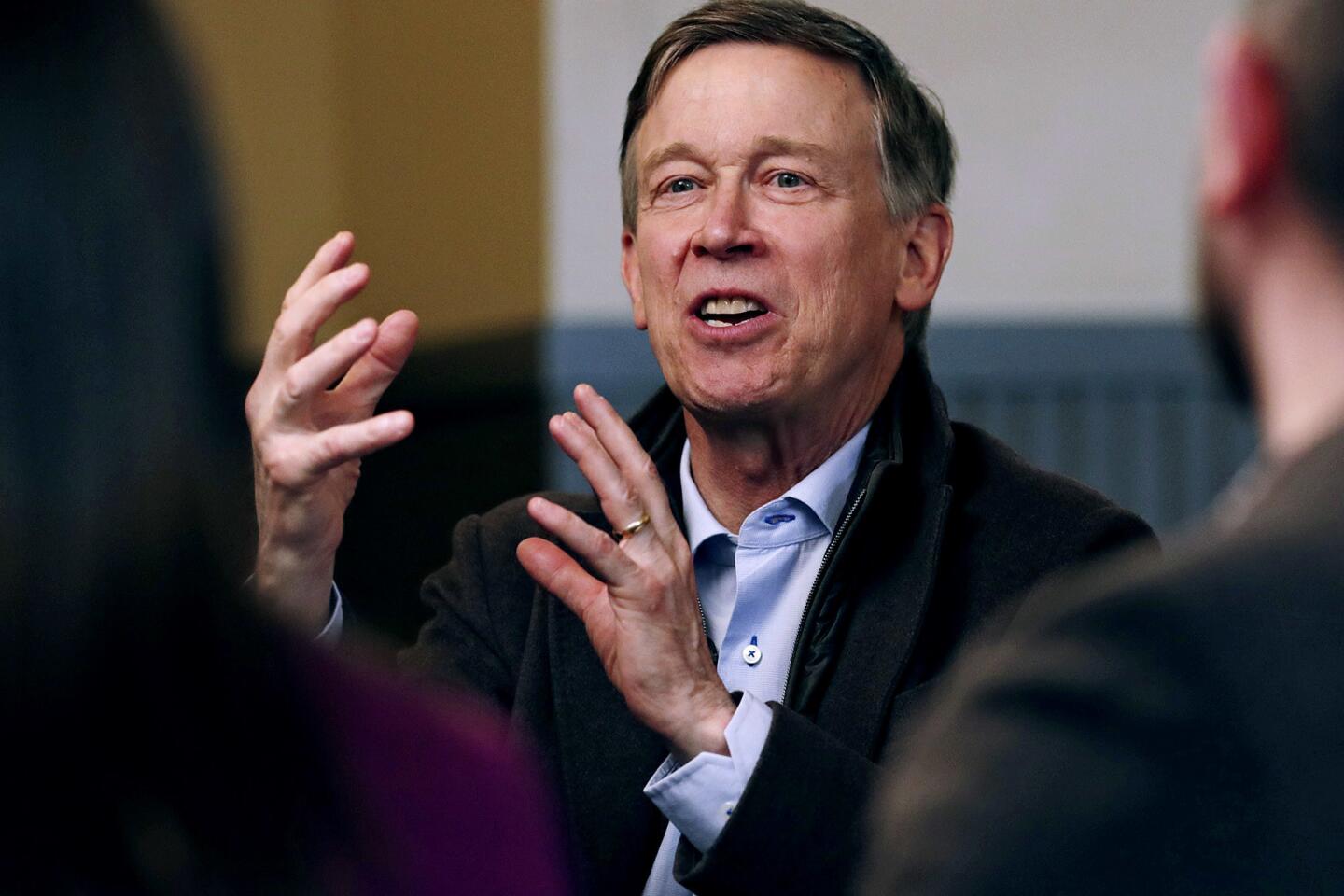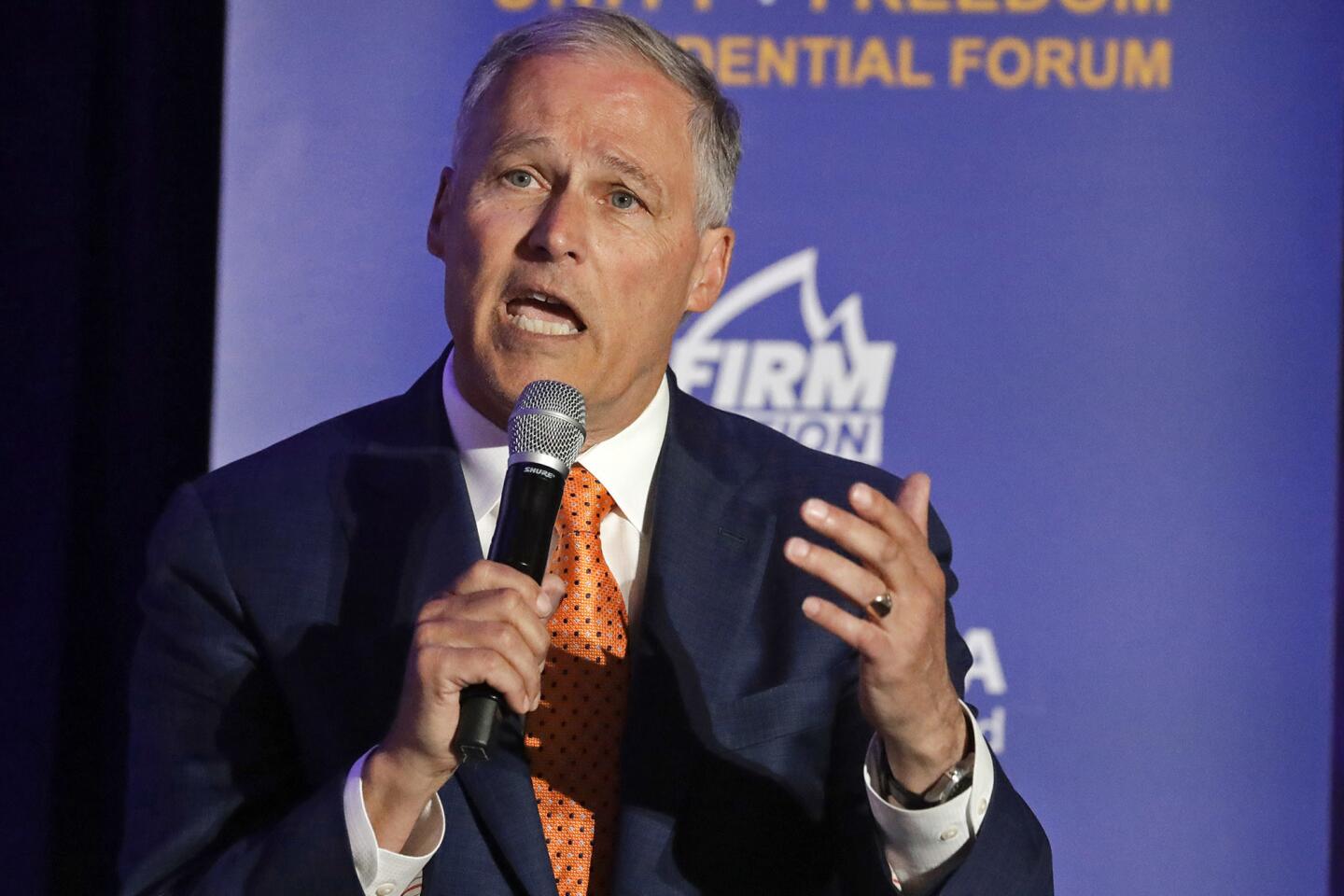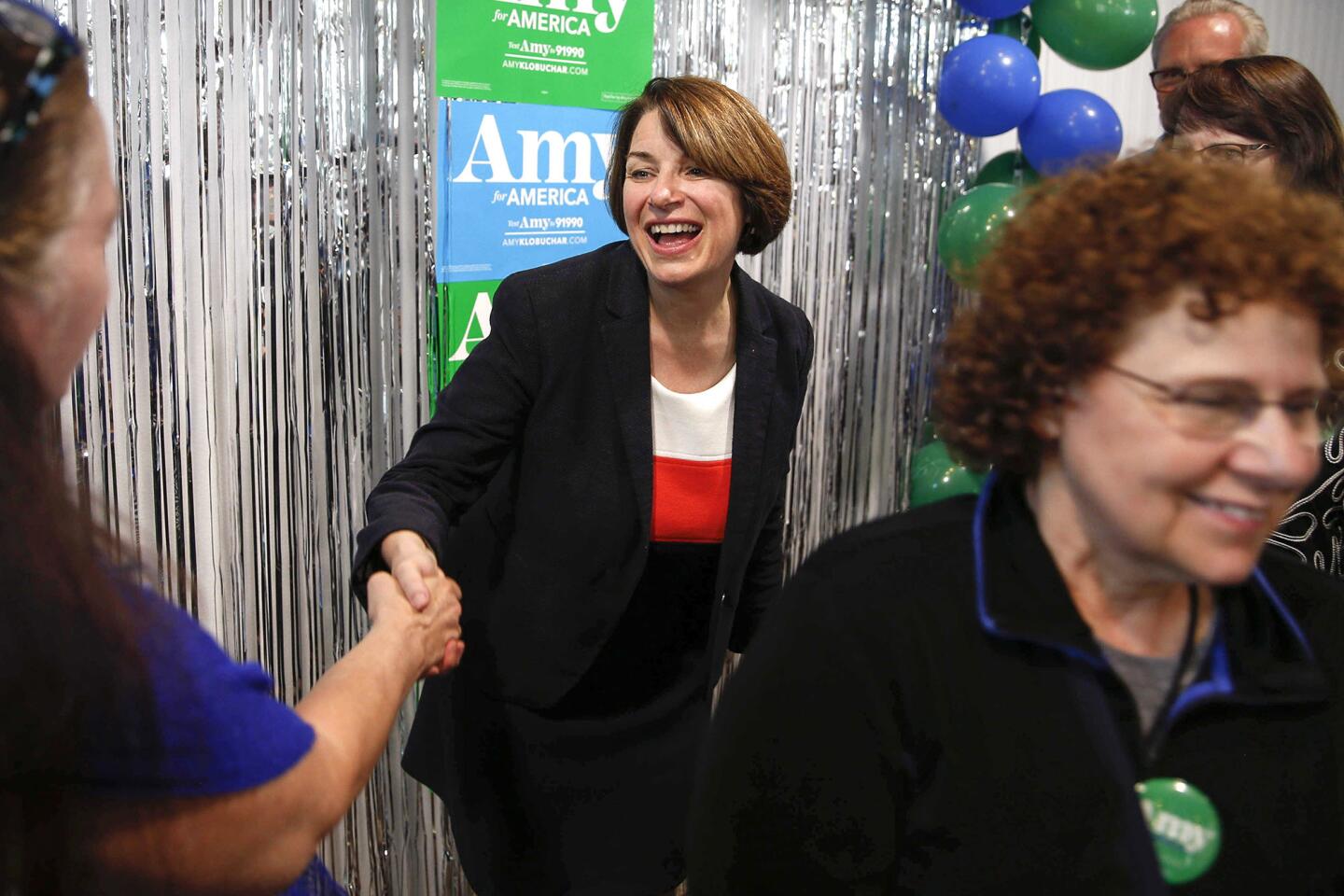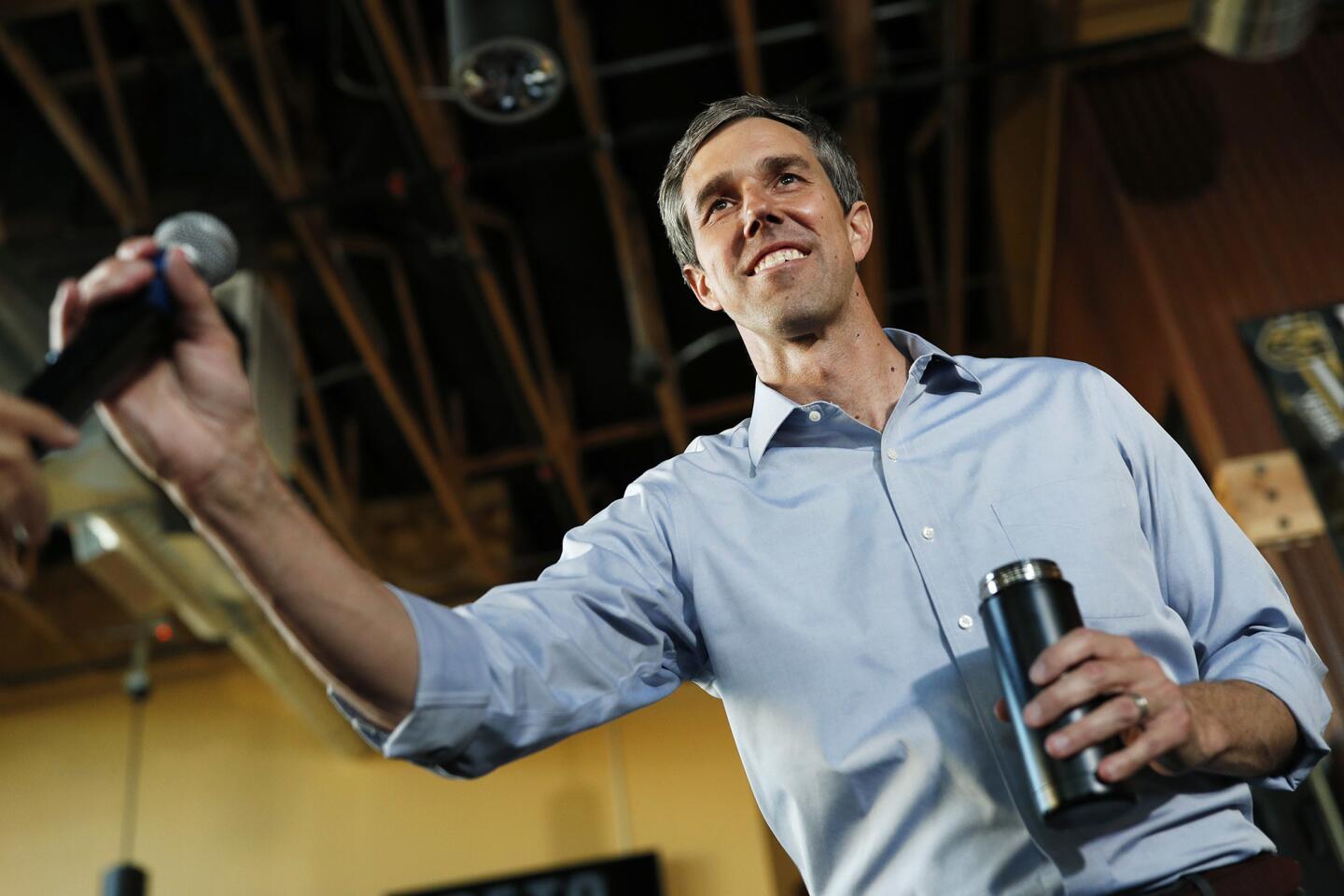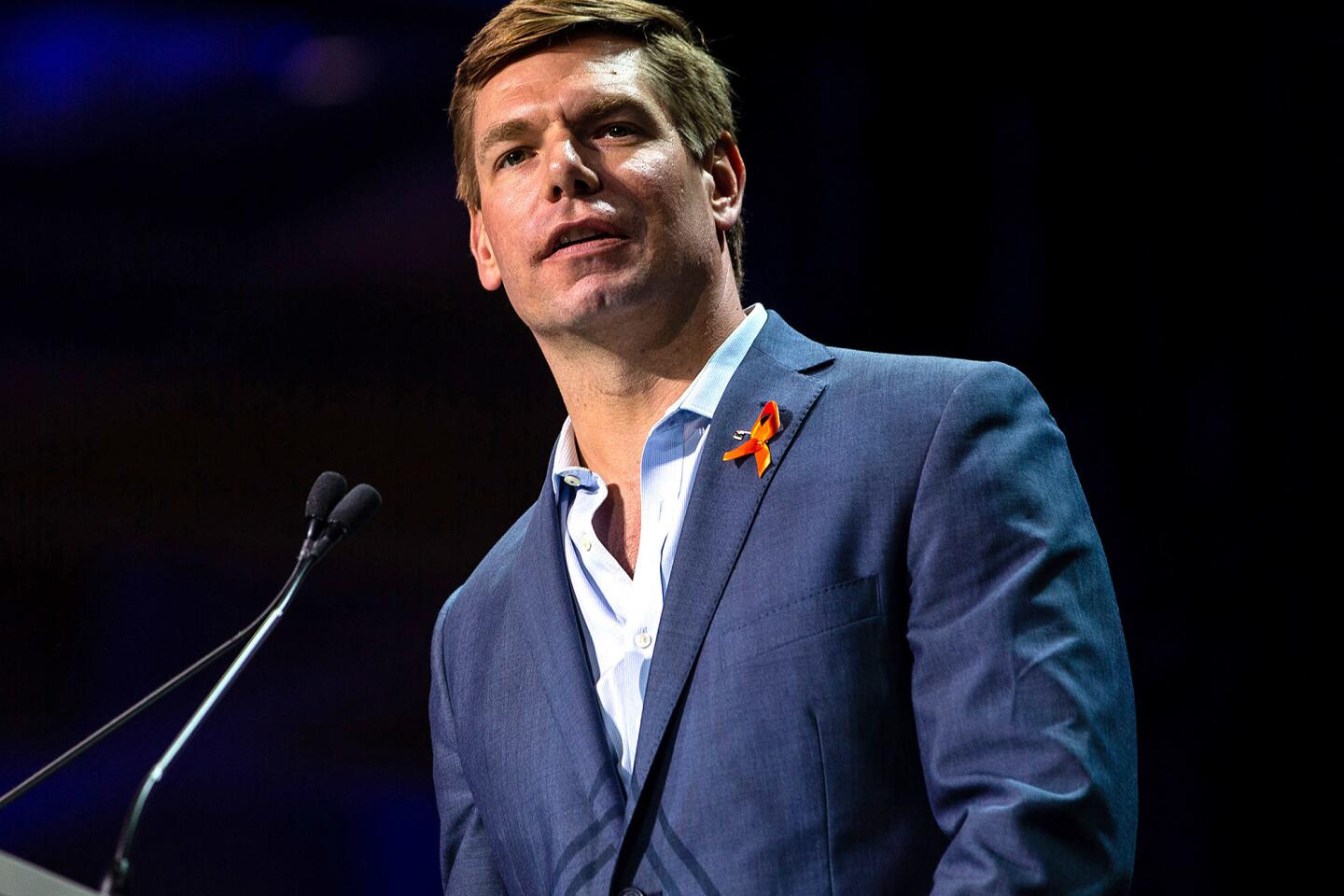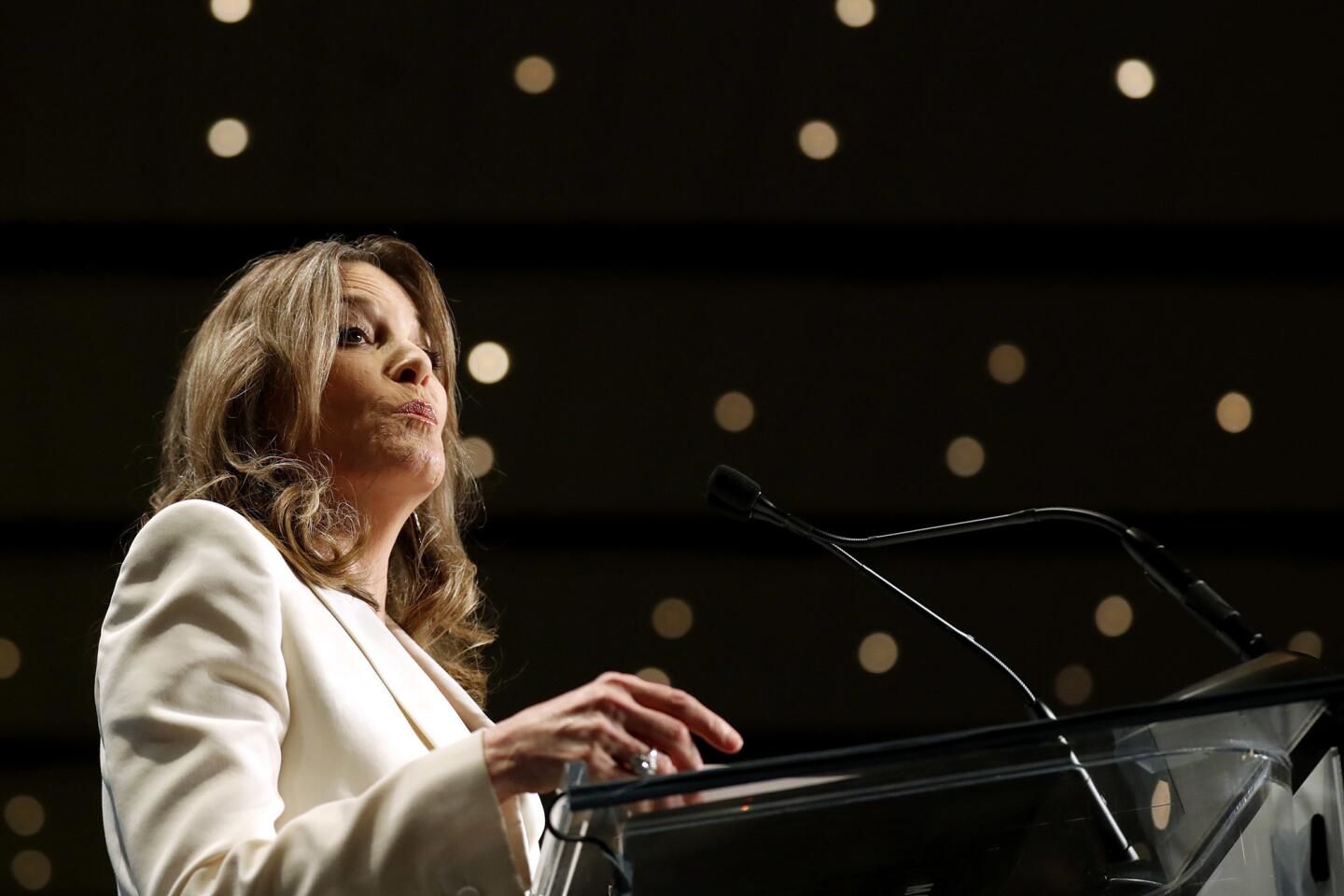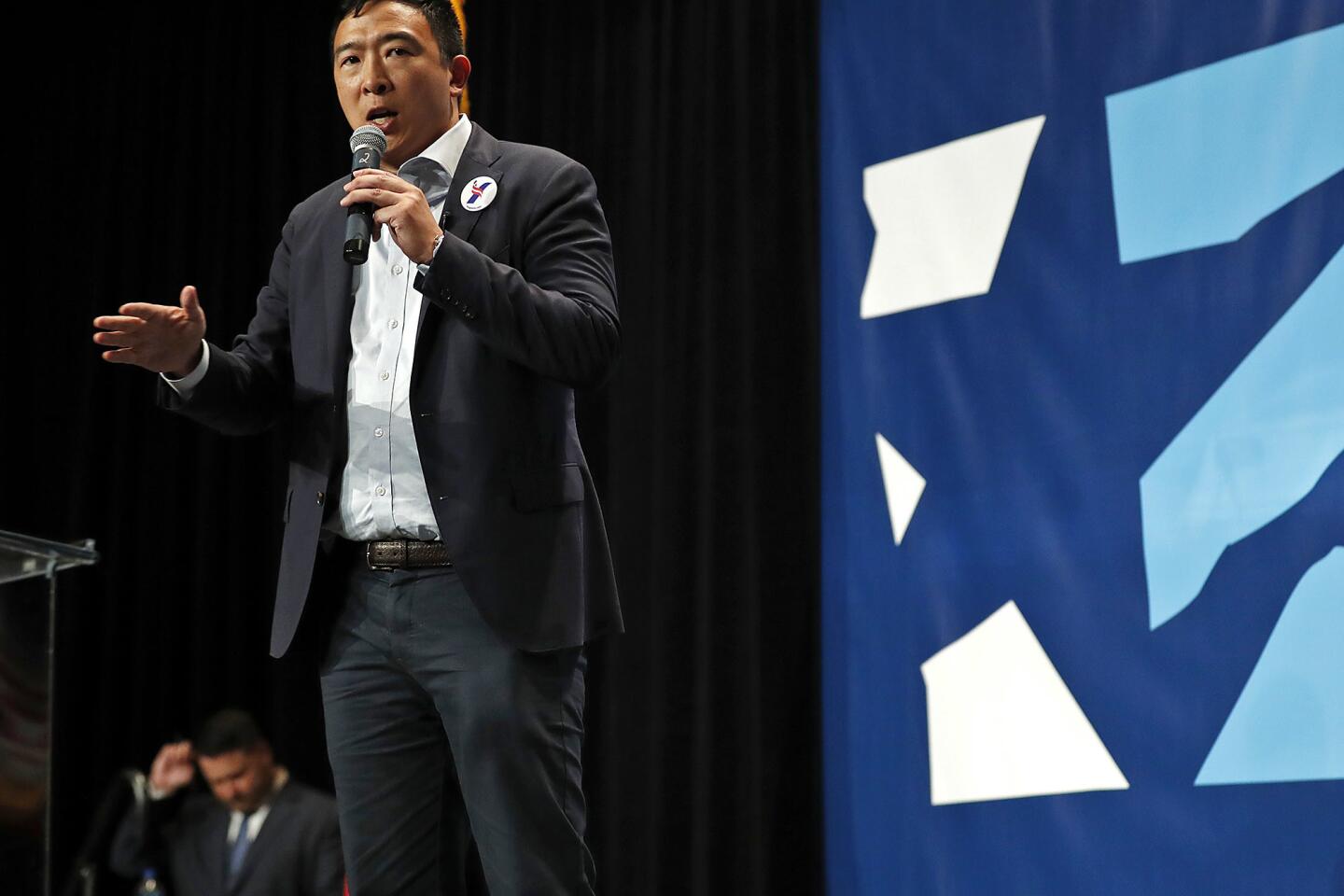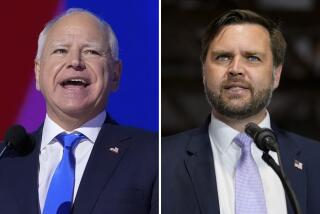What time is the Democratic presidential debate? Who gets to be on stage?
- Share via
With virtually the entire adult U.S. population seeking the Democratic presidential nomination — or so it seems — the party faces some knotty questions.
Is anyone left to vote for somebody besides him- or herself? Can all those people squeeze onto a single debate stage? How does that Buttigieg guy pronounce his name, anyway?
The debate question is a serious one, even if the number of Democrats running is only a mere two dozen or so.
There are several reasons for the exceedingly large field: Changes to the nominating process — which all but eliminated the gate-keeping role of the major political parties — and the advent of social media have made it much easier to wage at least a semiserious run for president.
There is little downside to entering and losing the contest (unless you think a lucrative cable-TV gig is slumming it) and plenty of incentive to run in 2020, with polls suggesting President Trump is highly vulnerable.
That brings us to that crowded debate stage.
The series of a dozen forums planned by the Democratic National Committee, beginning Wednesday night in Miami, will play an important role in sorting out the presidential field. For some contestants, the debates offer the best and perhaps only shot at breaking from the pack and stamping themselves as serious White House contenders.
That’s because after this week’s opening round in Florida and a pair of debates at the end of July, the rules for participation get even tougher and more exclusionary.
How many Democrats will be in Miami to debate?
Twenty.
All at once? Won’t that violate the fire code?
No. The debate will be split over two nights, back to back.
Ten candidates will debate for two hours each night Wednesday and Thursday — although “debate” is something of a misnomer, in the Lincoln-Douglas sense of the word, given the time constraints and limited ability for great depth or lengthy engagement.
Think of it more like a series of side-by-side press availabilities, with candidates fielding questions from journalists from NBC, which is hosting the first debate, and Telemundo.
Stakes high as presidential hopefuls prepare to debate »
How did the party decide which 20 candidates to include?
There were two ways onto the debate stage. One was to hit 1% support in three state or national polls approved by the DNC as among the most trusted and reliable. The other was to raise money from 65,000 unique donors, with a minimum of 200 in 20 different states.
So the lesser-known candidates will be relegated to a ‘kiddie table’?
No. That’s effectively what happened four years ago, when 17 Republicans sought the GOP nomination, straining both credulity and the physical capacity of the debate stage.
The solution was to split the field, grouping the underdogs in a matchup that served as a warm-up to the main event among the top contenders.
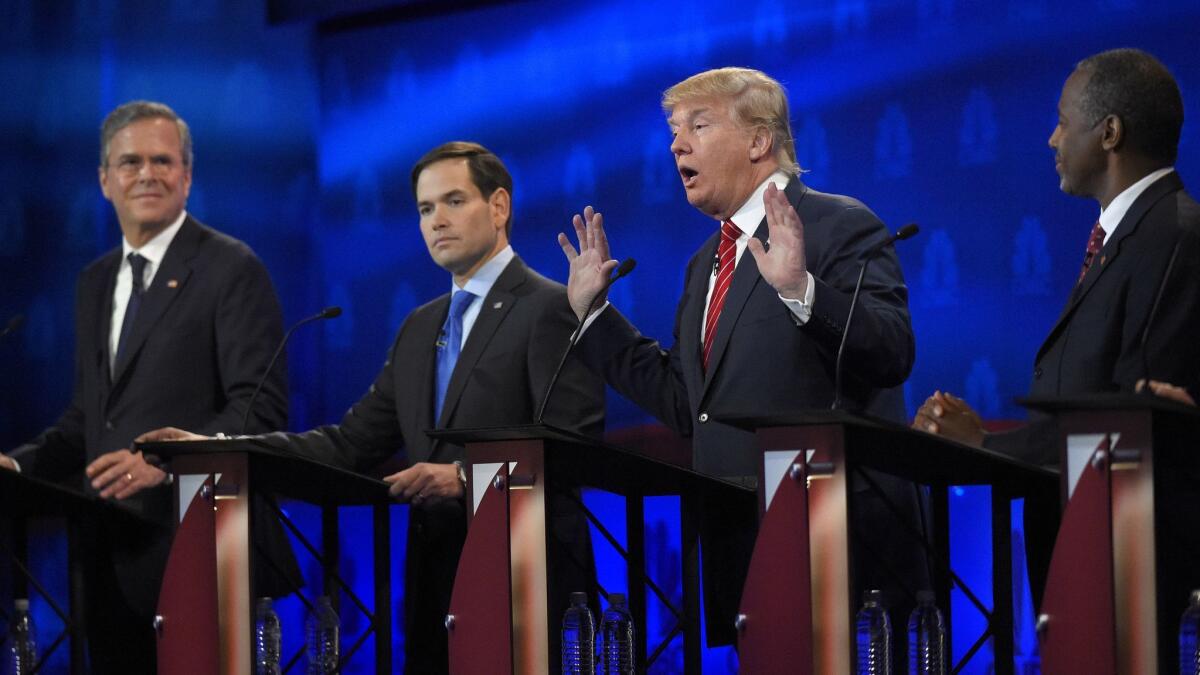
Given the inherent unfairness of stratifying the candidates — elevating some over others before any had uttered a word — Democrats decided to stage their debates differently.
This time, leading candidates — whose standing based on polling or perception put them in the top tier — will be spread over two nights. The idea is to have everyone start on a somewhat even footing and hope both nights produce compelling TV.
As Democrats debate, Biden’s crime bill likely to provoke attacks »
How was it decided which candidates appear on which night?
The candidates were split into two groups: those polling on average 2% or higher, and those with less support. The names were then picked randomly from each group to ensure a mix on both nights.
As it turns out, several top contenders — former Vice President Joe Biden; Sens. Bernie Sanders of Vermont and Kamala Harris of California; and South Bend, Ind., Mayor Pete Buttigieg — will debate Thursday night, with Biden and Sanders at center stage.
Massachusetts Sen. Elizabeth Warren, another in the top tier, will be center stage Wednesday night, alongside former Texas Rep. Beto O’Rourke and New Jersey Sen. Cory Booker.
Everyone must be super-pleased with this arrangement!
Ha ha. These are Democrats, remember? They could find a way to fight over sunshine and lollipops.
So what’s the gripe?
Some complain the rules put too much power in the hands of the Democratic National Committee and place too high a premium on fundraising as opposed to grassroots organizing — though the small-dollar stipulation was seen as a way of gauging candidates’ support on the ground as opposed to on Wall Street or along Washington’s K Street corridor, where lobbyists lurk.
One of the most vocal critics is Montana Gov. Steve Bullock, who makes the not-unreasonable case he could bring something unique to the conversation as a Western governor from a state Trump won handily.
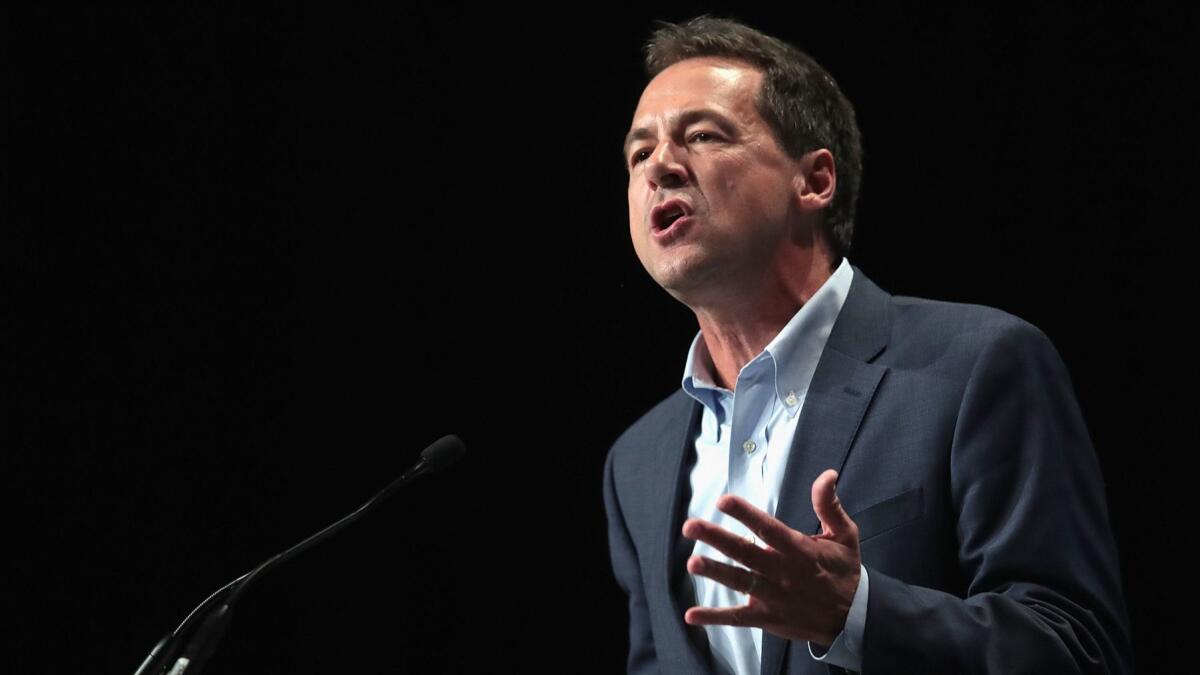
Subscribe to the Los Angeles Times 2020 election calendar »
Can’t wait to hear from him!
Alas. Bullock only declared his candidacy last month and will not be debating in Florida because he failed to meet the polling and fundraising thresholds. He was not pleased, though he has qualified for July’s round of debates.
Also excluded were Rep. Seth Moulton of Massachusetts and Wayne Messam, the mayor of Miramar, Fla.
Will I recognize everyone on stage?
Not unless you’re some kind of political obsessive, or busy boning up for the 2020 presidential edition of Trivial Pursuit.
Producers of the debate are putting the lower-tier candidates on the outer edge of the stage. Among them are Marianne Williamson, the author of “Enchanted Love: The Mystical Power of Intimate Relationships,” and Andrew Yang, a wealthy New York businessman who warns that robots could soon make many jobs obsolete.
A stable of more standard politicians will also be clustered toward the wings, among them John Delaney, a former Maryland congressman who launched his campaign in July 2017 but has yet to achieve a breakout moment.
How do I tune in?
The first debate will be televised live on NBC, MSNBC and Telemundo. It will also be streamed for free on NBC and Telemundo’s websites and apps.
The second debate, scheduled for July 30 and 31 in Detroit, will run on CNN. The third, on Sept. 12 and potentially Sept. 13, will air on ABC News and Univision.
After that, the Democratic Party will hold one debate per month until April 2020. The media sponsors of the remainder have yet to be announced, but the party has ruled out Fox News, citing its close ties to Trump.
What time is the debate?
The debate will run each night from 6 to 8 p.m. Pacific time.
By the way, how do you pronounce Buttigieg?
It’s BUDDHA-judge or, alternatively, BOOT-edge-edge. There’s some debate about which is preferable.
More to Read
Get the L.A. Times Politics newsletter
Deeply reported insights into legislation, politics and policy from Sacramento, Washington and beyond. In your inbox twice per week.
You may occasionally receive promotional content from the Los Angeles Times.
